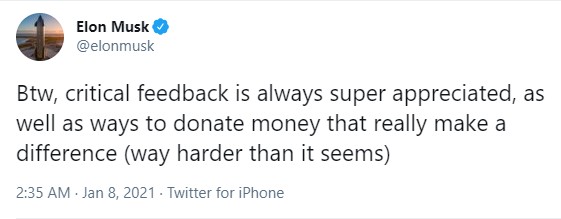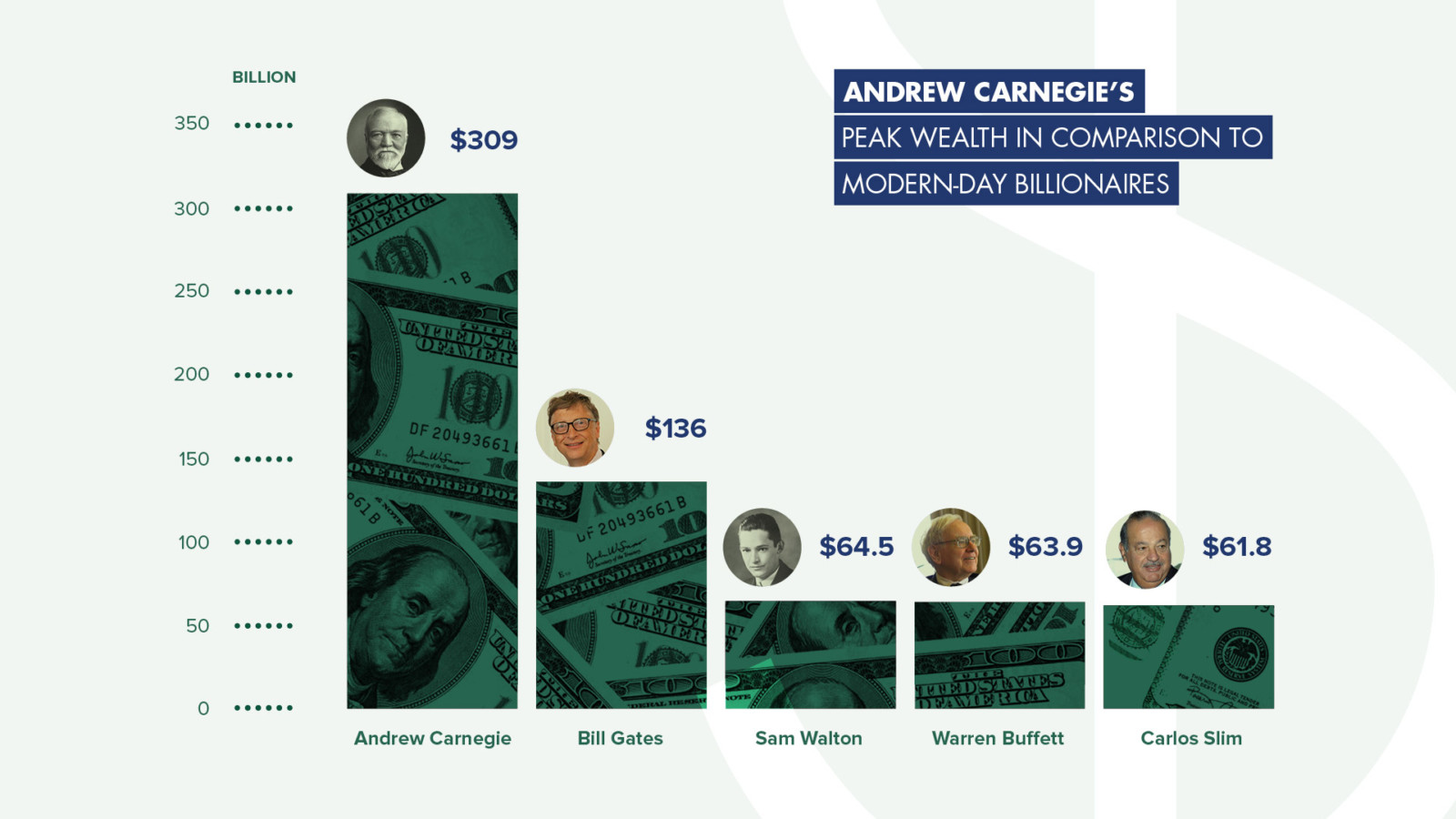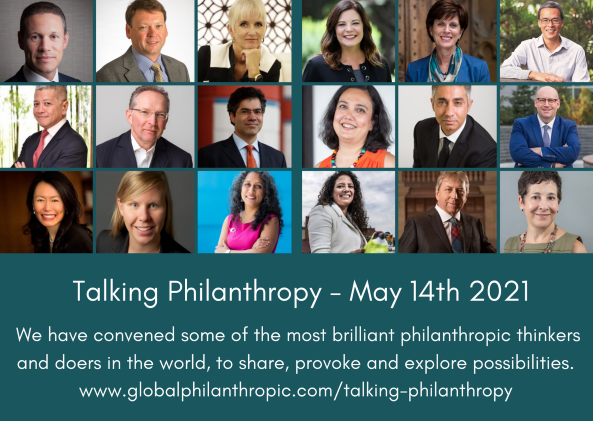Andrew Carnegie was one of the most successful businessmen and most recognised philanthropists in history. How can he guide our philanthropic journey?
At the beginning of the year, Elon Musk made waves on Twitter when he tweeted, “Btw, critical feedback is always super appreciated, as well as ways to donate money that really make a difference (way harder than it seems).” We often think of the donor journey from the perspective of fundraising but what about the philanthropic journey? How many potential philanthropists feel like Elon Musk, that it’s harder than it seems to donate money?

Your philanthropic journey: it might not be a journey of time and space, but it can be one of the most enjoyable journeys you take. Whether you are at the start of your journey or are further down the path, there are steps which can be taken to increase the enjoyment in giving. No matter how you measure your philanthropy, the ultimate measure should be that your philanthropic giving is the best thing that you have ever done.
5 lessons we have learned about the importance of philanthropy
There has never been a better or more important time to have this discussion. This is philanthropy’s moment – and it is a needed moment – the world events of the last year have been profound and what has become very evident is why philanthropy is important. 5 lessons we learned in the last year are:
-
- We are all interdependent in a way that we hadn’t appreciated before.
- We have learnt how important philanthropy is and will be in our response to national and global crises.
- We now have much higher levels of inequality between the wealthy and poor across the world.
- The largest intergenerational wealth transfer ever is just about to happen.
- Governments across the world simply will not be able to do it all – philanthropy will have a critical role.
What can we learn from history’s greatest philanthropist?
Andrew Carnegie was one of the most successful businessmen and most recognised philanthropists in history. “He may be the most influential philanthropist in American history. The scale of his giving is almost without peer: adjusted for inflation, his donations exceed those of virtually everyone else in the nation’s history.” (Philanthropy Roundtable)

Photo Source: The Carnegie Corporation of New York
As Carnegie put it, “It is more difficult to give money away intelligently than to earn it in the first place.” Having worked closely with philanthropists from around the world with net worth’s from a few million to several billion; I have observed that the best drivers for philanthropy comes from within – it is not something you can rush and it takes time to get it right.
In Carnegie’s Gospel of Wealth he discusses what he sees as the increasing gap between the wealthy and the poor with the growth in industrialisation. He sees this gap as being a natural part of innovation and modernisation however, he also believed that “Surplus wealth is a sacred trust which its possessor is bound to administer in his lifetime for the good of the community.” Carnegie had the insight to see how philanthropy could help close the gap and lift-up the poor which would thus lift everyone up in society. This has similar parallels to the inequality we are seeing today, and philanthropy can have the same level of impact as in Carnegie’s time.
In my view there are 3 critical drivers which maximise impact for the philanthropist –
-
- Be creative
- Regard how you give as an investment
- Giving should be the best thing you ever do
Carnegie who died well over 100 years ago, knew how to tap into the above internal drivers and even now we can see the impact his philanthropic contributions have made.
Be creative with your giving strategies
Spend time to think creatively about where and how you would like to give. What personal experiences or values connect with areas of philanthropic need? When we look at Carnegie’s legacy, you can see his creativity in the development of libraries across America.
“Carnegie is best known for the nearly 3,000 public libraries he helped build. As a young man in Allegheny City, Carnegie spent most of his evenings at the library of Col. James Anderson, a prosperous local businessman who gave working boys free access to his 1,500-volume library. It was clearly a formative experience, and one which [Carnegie] hoped might be of similar benefit to others.” (Philanthropy Roundtable)
At Global Philanthropic, we can facilitate a reflective discussion to connect areas of interest, value motivators, and creative ideas for your philanthropic giving. It is fascinating to see how this deeper dive into your personal motivators can drive some really creative ideas of giving and drive future giving with passion.
Regard how you give as an investment
Philanthropy is an investment of your resources and when done correctly, it has a positive emotional response. Consider who you want to give to and what you want to give. You then need to think about how you would like to give. You can deploy much of the same tools of investing to philanthropy in order to do it well. If you were investing your money into a company, you might ask –
-
- Is this business sound? Is this the best organisation for my investment?
- How can I deploy the money, so it is well spent?
- How can I evaluate the success of my investment / gift?
When we look at Carnegie’s investment into public libraries, we see that he took the same approach as a business investment. “Starting in 1885, Carnegie began funding the construction of thousands of libraries… to ensure that communities were equally invested, he would only pay for buildings—and only after local authorities showed him credible plans for acquiring books and hiring staff.” (Philanthropy Roundtable)
You should feel good about who you give to and how your gift is used. This takes some time, research, and evaluation to figure out – just like a business investment would.
Giving should be the best thing you ever do
Your philanthropy journey should instil a sense of pride, the gifts you give should give you a sense of accomplishment and add to your happiness. Your giving strategy should not be out of a sense of guilt or because you feel pressured to give to a certain cause. In my experience, the best way to counter guilt-giving is to do a deep dive into your personal profound drivers.
Ask yourself –
-
- What am I about?
- What are my values?
- What am I passionate about?
- What causes do I gravitate towards? Why?
- How could I express myself philanthropically?
- Remember to think creatively, nothing is off limits
- How do I measure the impact of my giving?
This process is complex and it is at this stage where potential philanthropists may feel overwhelmed or too busy. Like Elon Musk, the frustration leads to thinking that it is harder than it seems to donate money well. This is where a philanthropy consultant can take the frustration and complexity out of developing your giving strategy. A philanthropy consultant can bring back the joy in giving to ensure that it is the best thing you ever do.
This is what made Carnegie the father of modern philanthropy, he knew his profound personal drivers behind his philanthropy then used these to inform and develop his overarching giving strategy. “Carnegie boldly articulated [in The Gospel of Wealth] his view of the rich as mere trustees of their wealth who should live unostentatiously, provide moderately for their families, and use their fortunes to promote the ‘general good.’”(The Carnegie Corporation of New York) Further he believed that “just giving away money was not enough….The problem, as he saw it, was ‘indiscriminate charity’—providing help to people who were unwilling to help themselves. That sort of philanthropy only rewarded bad habits rather than encouraging good ones.” He preferred to support charities “that strengthened and refreshed individuals so they could become more independent and productive themselves.” (The Philanthropy Roundtable)
How might your profound personal drivers inform and develop your giving strategy? At Global Philanthropic, we have tools to help you define these principles and have experience working with philanthropists in creating a philanthropic journey that resonates with their personal profound drivers.
The key to successful philanthropy
We speak a lot about impact when it comes to philanthropy and charitable organisations. What is the impact of your gift? What is the impact of the organisations programmes and mission? Have you asked yourself the most important question – How good do you feel about your giving?
It should be the best thing that you have ever done. If you achieve that you will very much enjoy both the philanthropy journey and the point of destination. That is the key to successful philanthropy.
“No man becomes rich without himself enriching others.” – Andrew Carnegie

Global Philanthropic has convened some the world’s leading philanthropic organisations and academic institutions for Talking Philanthropy: Asia-Pacific – Supporting a Philanthropic Ecosystem on May 14th 2021. The theme for the forum will bring together leaders in philanthropy from the region and around the world to focus on the structural issues around philanthropy in Asia-Pacific.
Talking Philanthropy will provide a macro perspective on the key issues that need to be addressed in the Asia-Pacific region to allow philanthropy to grow and flourish. We will discuss the wealth distribution and the dramatic growth of Ultra High Net Worth Individuals (HNWI), the roles of development organisations, NGOs, government and policy, philanthropists, and the charity sector in nurturing the philanthropic ecosystem.
Our event partners include the Lee Kuan Yew School of Public Policy at the National University of Singapore, Centre for Strategic Philanthropy at Cambridge Judge Business School at the University of Cambridge together with The Bill & Melinda Gates Foundation, United Nations Foundation, BirdLife International, Vim & Vigour PR and BILLIONAIRE Magazine.
Learn more at globalphilanthropic.com/talking-philanthropy and join the discussion.


